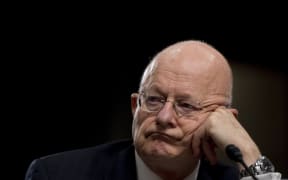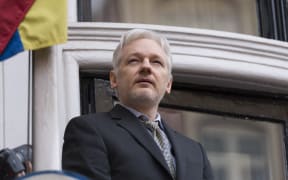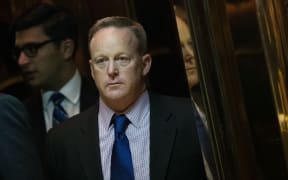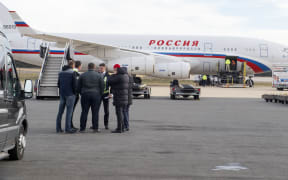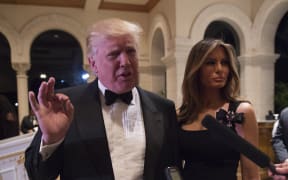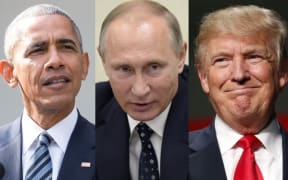Russian President Vladimir Putin sought to help Donald Trump win the presidential election, a US intelligence report says.
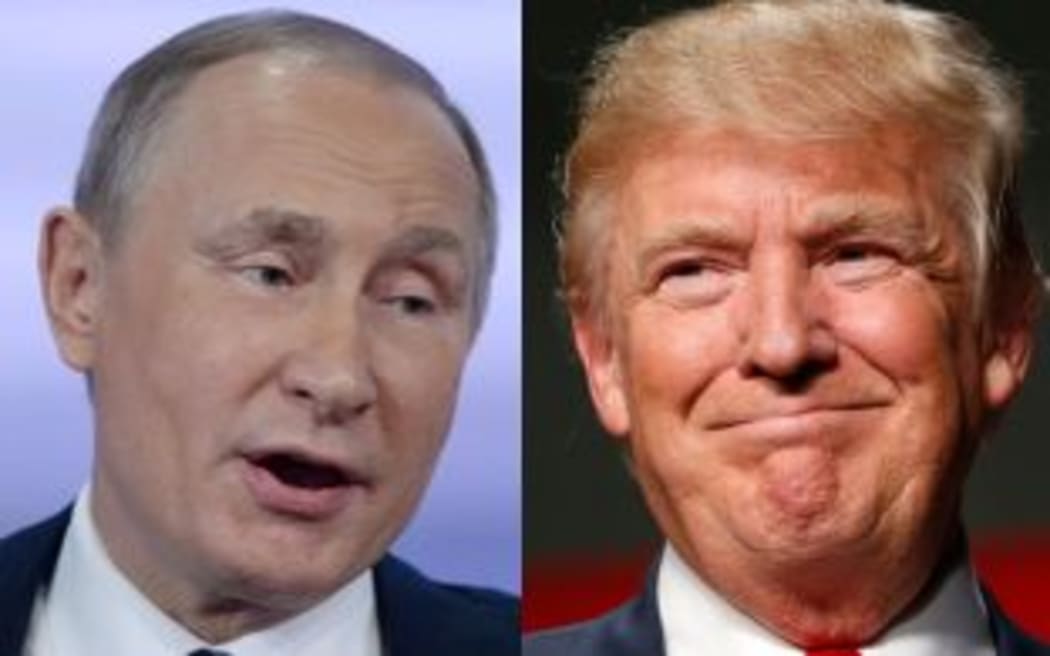
Photo: AFP
The declassified report says the Russian leader "ordered" a campaign aimed at influencing the election.
The report was released shortly after intelligence chiefs briefed Mr Trump on their findings.
Mr Trump stopped short of accusing Russia of interfering, saying only that the election outcome was not affected.
The report says that the Kremlin developed a "clear preference for President-elect Donald Trump".
"We also assess Putin and the Russian government aspired to help President-elect Trump's election chances when possible by discrediting Secretary [Hillary] Clinton and publicly contrasting her unfavourably to him," it said.
Since winning the election, Mr Trump has repeatedly questioned US intelligence on the claims of Russian hacking.
US officials previously said the Kremlin was behind the hacking of Democratic Party emails aimed at damaging Mr Trump's rival, Hillary Clinton.
Russian agents are alleged to have sent stolen Democratic emails to WikiLeaks to try to swing the vote for Mr Trump.
Russia has denied any involvement in the hacking and WikiLeaks founder Julian Assange said Moscow was not the source for the site's mass leak of emails from the Democratic Party.
Earlier today, America's top intelligence officials briefed Donald Trump on Russian hacking claims, hours after he dismissed the claims as a "witch hunt".
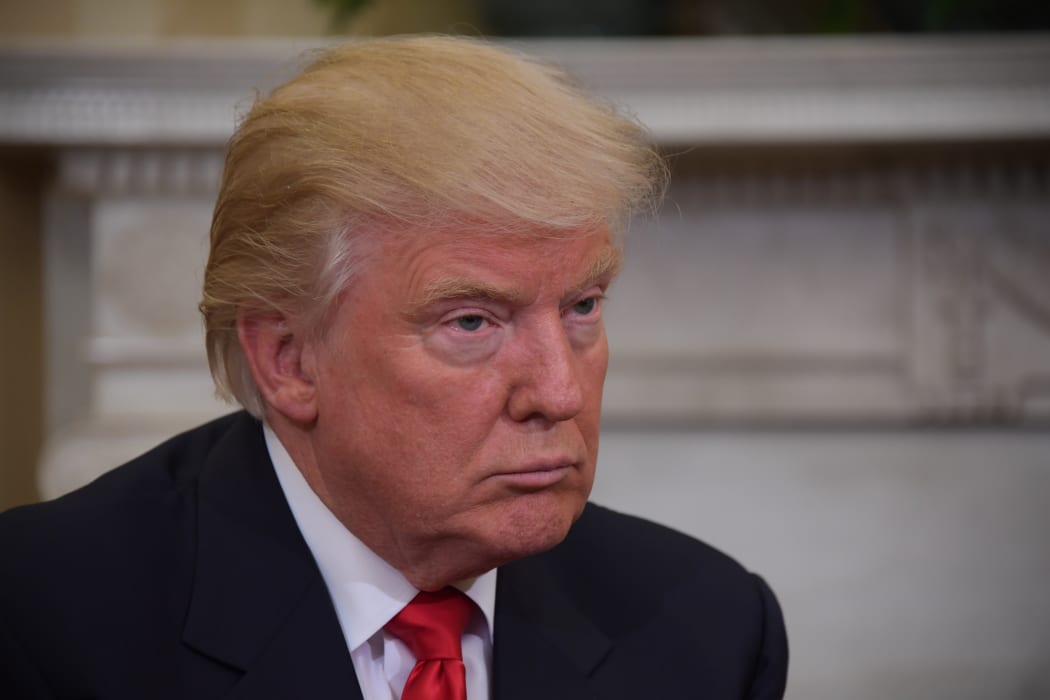
US President-elect Donald Trump Photo: AFP
Since winning the poll, Mr Trump has repeatedly questioned intelligence on the hacking claims.
Just hours before the briefing in New York, he called the claims a "political witch hunt" by his opponents.
Mr Trump told the New York Times that US institutions had been the target of previous hacking attacks, but they had not received the same media attention as the alleged intrusions during the election campaign.
And in a tweet, Mr Trump said he wanted an investigation into how "top secret intelligence" was shared with US broadcaster NBC "prior to me seeing it".
But after the meeting, Mr Trump said it had been a "constructive" meeting and he planned to appoint a team to give him a plan to combat cyber attacks within 90 days of taking office.
"While Russia, China, other countries, outside groups and people are consistently trying to break through the cyber infrastructure of our governmental institutions, businesses and organizations including the Democrat National Committee, there was absolutely no effect on the outcome of the election including the fact that there was no tampering whatsoever with voting machines."
The identities of the Russian agents behind the hack are known to US authorities but have not been released, reports say, citing intelligence sources.
Mr Trump was briefed at Trump Tower by National Intelligence Director Gen James Clapper, CIA Director John Brennan and FBI Director James Comey.
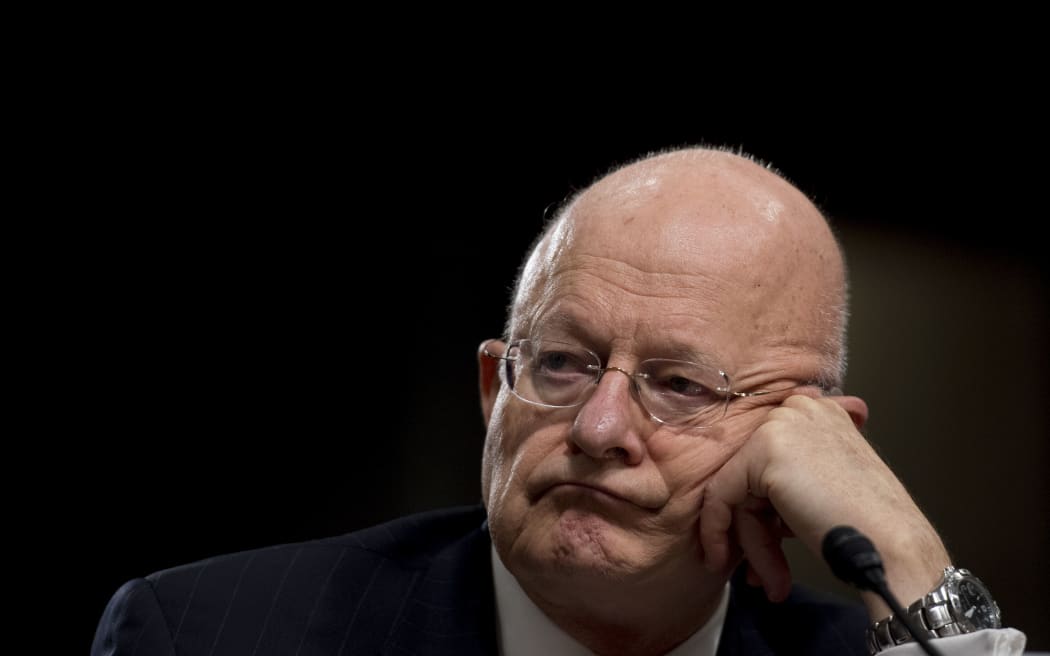
Director of National Intelligence James Clapper testifies before the Senate Armed Services Committee on Capitol Hill in Washington. Photo: AFP
Sean Spicer, who will become White House communications director under Mr Trump, told ABC's Good Morning on Friday that the president-elect would go into the meeting "prepared to listen and understand how they got to the conclusions''.
The Russian agents are alleged to have sent stolen Democratic emails to WikiLeaks to try to swing the vote for Mr Trump.
Russia has denied any involvement in the hacking and WikiLeaks founder Julian Assange says Moscow was not the source for the site's mass leak of emails from the Democratic Party.
According to CNN, the Washington Post and NBC News, citing intelligence sources, agencies had intercepted communications following the election which showed senior Russian government officials celebrated Donald Trump's win over rival Hillary Clinton.
"The Russians felt pretty good about what happened and they also felt pretty good about what they did," a senior US official quoted by the Washington Post said.
NBC says the alleged Russian hacking targeted not just the Democratic National Committee (DNC) but also the White House, joint chiefs of staff, the department of state and large US corporations.
Mr Trump has repeatedly rejected allegations that the Russian government was behind the hacks.
On Wednesday, he repeated Julian Assange's claim that "a 14-year-old" could have carried out the breach, and said the DNC was "careless".
On Thursday, he said he was a "big fan" of intelligence agencies, but appeared to question their findings in a tweet, asking why they decided not to request to examine computers belonging to the DNC.
Outgoing Vice-President Joe Biden lambasted the president-elect on Thursday for attacking the intelligence community over the claims, saying it was "absolutely mindless" not to have faith in the agencies.
He told the PBS network that he had read a US intelligence report that clearly confirmed Russia had tried to "discredit the US electoral process" as part of a systematic campaign to undermine Mrs Clinton.
Her campaign manager, John Podesta, was among those whose emails were hacked, as well as the DNC.
Mr Biden also criticised Mr Trump for ignoring intelligence on the hack.
"The idea that you may know more than the intelligence community knows - it's like saying I know more about physics than my professor. I didn't read the book, I just know I know more," he said.
On Thursday, Gen Clapper told a hearing of the Senate Armed Services Committee that Russian President Vladimir Putin had ordered the hack, and said the motive would be revealed next week.
Republican Senator John McCain, a leading Russia critic in Congress who chaired the hearing, said it was in the interests of all Americans to confront the problem of foreign hacking.
"There is no national security interest more vital to the US than the ability to hold free and fair elections without foreign interference."
Last week President Barack Obama ordered the expulsion of 35 Russian diplomats from the US over the alleged hacking. Russia has said it will not reciprocate.
- BBC
